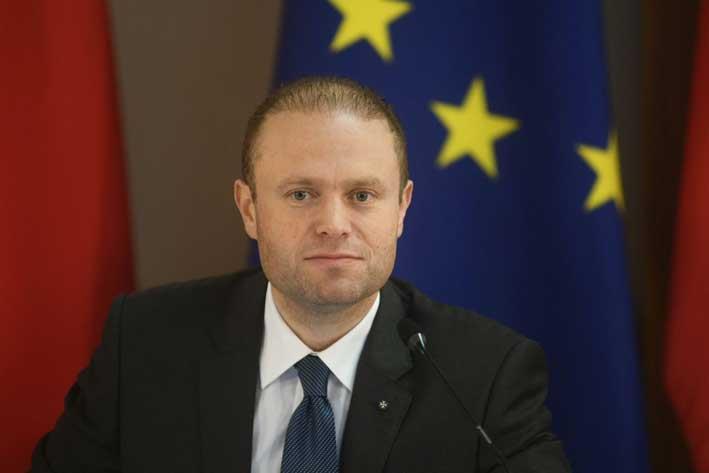The Office of the Prime Minister has avoided questions sent by email, telephone, and text message by The Malta Independent regarding last Friday's hijacking of Afriqiyah Airways flight A320.
Whilst it is important to praise and commend those involved with the peaceful negotiation and safe release of the passengers, led by Brigadier Jeffrey Curmi, a number of questions still remain. The lack of concrete and detailed information from the government in a post-truth landscape has given rise to a number of conspiracy theories which are beginning to gain ground in the cultural conscious.
For example, it remains to be seen how negotiators were able to convince the hijackers to give up their only leverage and vacate the aircraft, when both Dr Muscat and the Police Commissioner Lawrence Cutajar said that the assailants' demands had never been discussed and were never on the table.
In fact, there are a number of public concerns as to why both the passengers and the hijackers seemed so at ease when exiting the aircraft.
It is also important to note that at the time negotiators and the government thought that the hijackers, Moussa Shaha and Ahmed Ali, were armed with real explosives and pistols instead of replicas, and were treated as dangerous individuals, unless the parties involved were aware of certain information and have not yet informed the public.

The Prime Minister, at Friday's press conference, also said that negotiators had told the hijackers that negotiations would only begin once the passengers were released. The question remains as to whether or not there have been any talks, with the police commissioner saying that the men have not answered any questions or made any demands since they surrendered themselves to the Maltese authorities.
The men's lack of response also feeds into the mystery as to why exactly the men hijacked the plane. Whilst there have been a number of theories put forward, nothing has yet been confirmed by the government.
There have also been questions raised as to whether or not the negotiators gave the hijackers certain assurances which were revoked once they found themselves in police custody.
Even Friday's press conference seemed to be more of an exercise in political spin than a genuine attempt to inform the public and the press of what exactly happened that afternoon. When asked questions by members of the press, the Prime Minister gave typically political and vague answers. It remains to be seen why exactly OPM has not responded to these pertinent questions.
There are also concerns surrounding the political instability in Libya with the country currently experiencing a chaotic power struggle between the various tribes that dominate the region following the removal and subsequent killing of Colonel Muammar Gaddafi.
The country has been divided into multiple pockets and Friday's incident highlighted some of the major security issues which, as was proven, could potentially affect Malta.
When asked at Friday's press conference by The Malta Independent as to whether or not the airport in question is under the control of a faction or the UN-backed government, Dr Muscat said that the questions were better served if they were directed at the bodies in question.
Sabha, the city from where the aircraft departed, is the capital of Libya's vast southern Fezzan region and the heart of the country's expansive smuggling (both arms and drugs) and human trafficking network.
The authority of Libya's two rival governments does not extend into the country's deeply tribal and sparsely populated south. However, the scale of the illicit network trading people, drugs, weapons and fuel is so vast and so lucrative that it encompasses all factions and groups in Libya's divisive civil war.
The Tebu and Taureg populate the southern districts of the city, whereas the north is dominated by Libya's Arab Awlad Suleiman Tribe, aligned with the country's Islamist government in Tripoli.
Awlad Sulaiman Tribe, which holds most of the positions in the local government, experiences regular clashes with the Qadhadhfa, the tribe loyal to deposed dictator Muammar Gaddafi.
One of the hijackers, waived the former flag of Gaddafi’s regime. The pilot, Ali Milad, said the men were seeking political asylum in Europe and wanted to set up a political party called "the New Fateh." Fateh is a reference to Gadhafi, who led the Fateh revolution after his coup in 1969.
However, when the two men appeared in court on Christmas Day, no request for political asylum was made and no request for extradition was filed.
At a news conference later in Tripoli, Libya's transportation minister defended his country's airport security.
"Security breaches happen everywhere and Libya is not an exception," Milad Matouq said. "Despite the security situation (in the country), things are excellent. This is the first incident since the (2011) revolution."
But a Libyan lawmaker disputed the minister's comments, saying he was not surprised that a plane from Sabha was hijacked because security measures were "messy" at the nearby Tamanhent airport.
The Sebha airport was closed after tribal clashes two years ago and its air base was turned into a civilian airport for internal Libyan flights. A small militia from the city of Misrata in northwestern Libya has been guarding it since 2014.
Salah Qalma, a lawmaker from Sebha, said while the airport has an electronic gate at its arrival hall there are no electronic gates or guards at its adjacent exit gates.
This political and security uncertainty along with Malta’s involvement with French Customs surveillance operations of the region (as was exposed after the airplane crash in October) should require the government to inform the public what is being done to guarantee and safeguard Maltese national security.